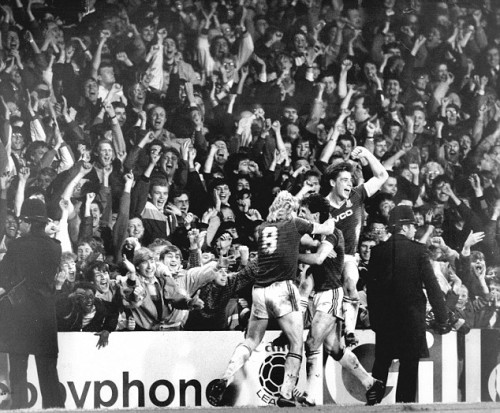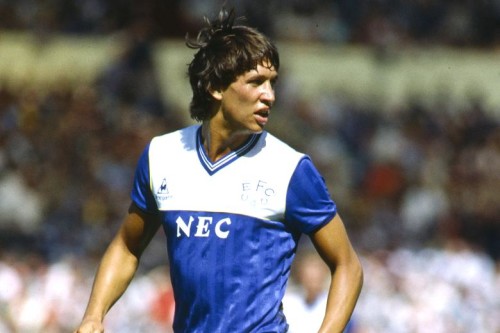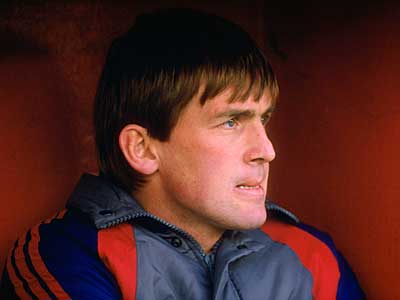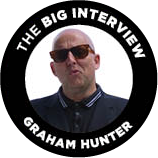By Neil BackPage
When we were planning the Big Interview with Frank McAvennie, we settled on a strategy very early on (this is unusual for Graham, Martin BackPage and I): we wanted it all to be about West Ham’s 1985/86 season, the club’s best-ever top-flight finish and McAvennie’s first in England, 30 years on.
McAvennie talked as well as we hoped he would about that season. His transfer from St Mirren in the summer of 1985; the television blackout that made him virtually anonymous despite leading the league in goals – until he showed up with Denis Law on Terry Wogan’s chat show; his partnership with Tony Cottee; the forgotten craftmanship of Alan Devonshire; the fatherly guidance of John Lyall. But his description of the run-in that season had us re-reading the narrative. Listening to the tape for a second and third time, we were still piecing together the twists and turns and the anachronisms of the final days.
First of all, the protagonists. Liverpool, Everton and West Ham United. This in itself is peculiar, as it was another club, Ron Atkinson’s Manchester United, who had started in devastating style, winning 10 out of 10 league games at the start of the season. So complete was their collapse from that position, they were out of it by the end of February.
West Ham moved into contention at around that time – it was they who knocked United off their perch at the start of February, one of only two games they played that month due to the weather. That left them with a huge backlog of fixtures. They had five games in hand over Liverpool at one point. They would play eight games in March and nine in April.
Everton were the defending champions (with no European Cup campaign in the first year of the ban on English clubs) and had new signing Gary Lineker on his way to top scoring in the league and then the World Cup, for England. They entered the final days of the campaign at a disadvantage after a shock loss to Oxford United in an evening game on April 30.
Then there was Liverpool. In Kenny Dalglish’s first season as player-manager, their season was a mirror image of that of Manchester United. It ended with them taking 34 points from a possible 36 in their final 12 games.
Liverpool played their final game on Saturday, May 3, 1986. Everton and West Ham also played, with both teams scheduled to go head-to-head the following Monday to complete their schedules. At 3pm on the Saturday, all three had a shot at the title.
If Liverpool lost at Chelsea, who would finish sixth, then either Everton or West Ham would be champions with two wins in 48 hours. A draw at Stamford Bridge ended Everton’s hopes, but West Ham could still win the title. A win for Liverpool in London on the Saturday ended it there: Monday’s game became a shoot-out for second place.
McAvennie and Cottee both scored in a 3-2 win at West Brom. Everton destroyed Southampton 6-1. Fans of both teams were stuck to their radios for news from Stamford Bridge. And the news was not good. Dalglish scored the only goal of the game.
“We came off the pitch and we got told it was a draw at Stamford Bridge,” remembers McAvennie in the podcast. “Then we got told Kenny had scored. I’ve never seen so many grown men cry.
“I didn’t want to play on the Monday. All we needed was Chelsea to draw with Liverpool. We would have battered Everton on the Monday.”









